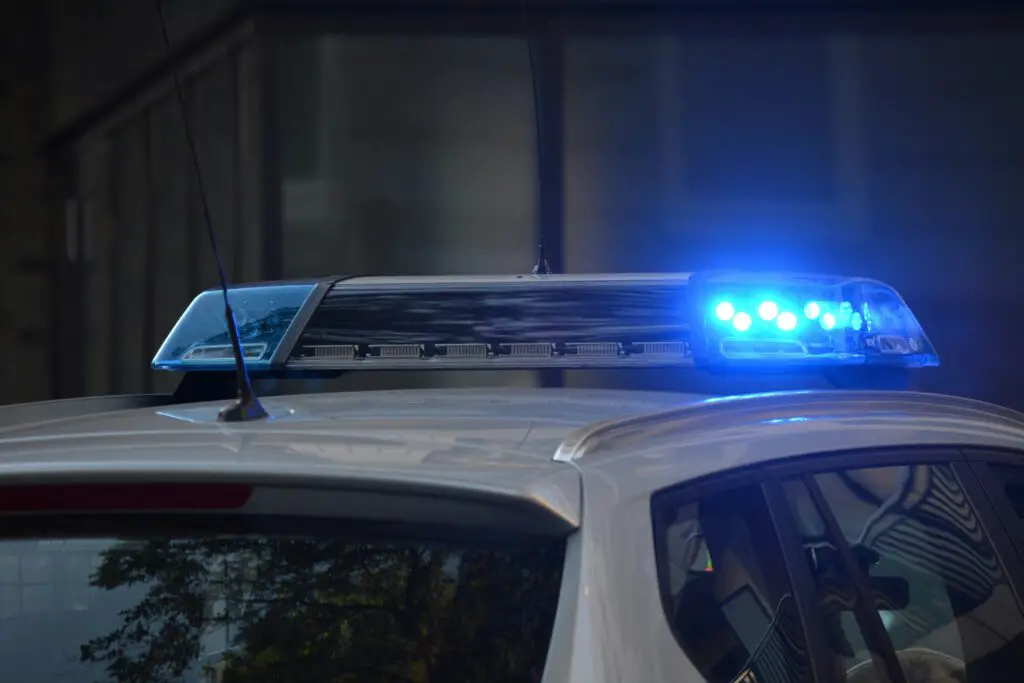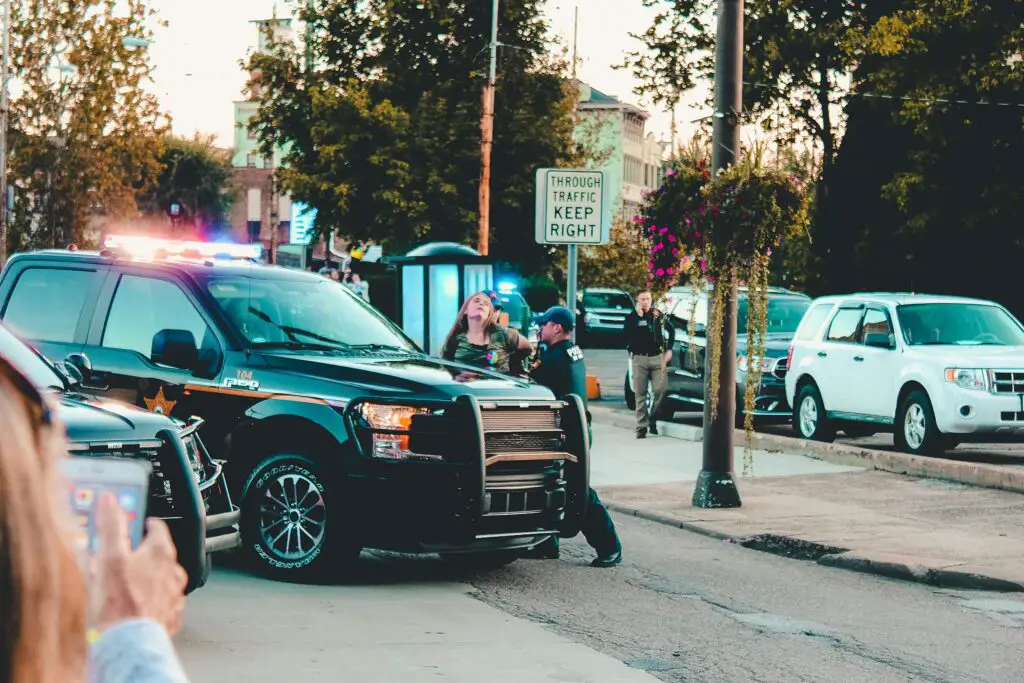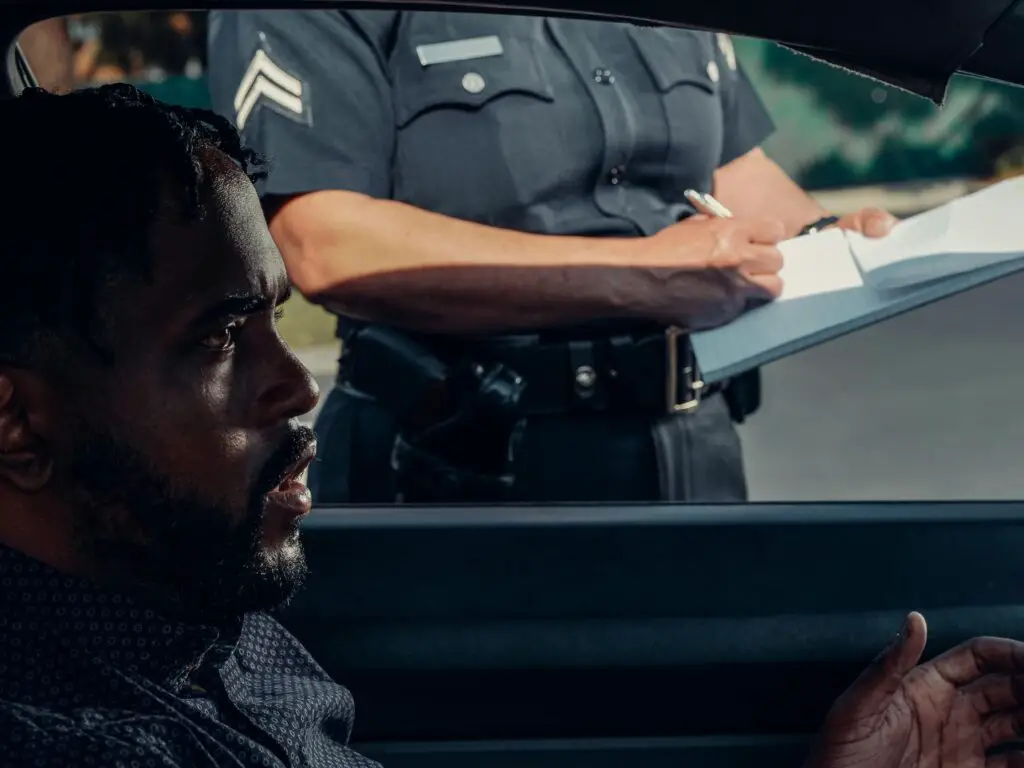Related Posts
In this viral clip sweeping the internet, a police officer searches a man’s car without a warrant, raising questions about the difference between misdemeanors vs infractions. When the car owner voices his concerns, the situation escalates, leading to a full arrest.
The video begins with the car’s owner walking up to the police officer and asking for his name and badge number. The man asks a few more questions, most of which pertain to the police officer opening his door and searching his car without a proper warrant.
The cop shoots back by saying, “Where are the plates that are supposed to be on this truck?” He even threatens to take the man to jail. After one of the officer’s colleagues confirms that the car is unregistered, the cop walks up to the man and performs an arrest. All the while, the man tries to resist and asks more questions.
Infractions vs Misdemeanors

This viral video illustrates one important concept: the difference between infractions and other penalties. Under U.S. law, infractions and misdemeanors describe a range of different offenses. By definition, the difference between an infraction and a misdemeanor is quite large and can dictate whether you must appear in court or whether you will be faced with jail time.
Infractions
Infractions are small offenses that are typically the least serious legally. They are otherwise known as “petty offenses” and consist of small breaches or infringements. Most infractions relate to driving, although some may govern other public spaces and procedures.
Due to the minor nature of infractions, they have very lenient punishments. Most jurisdictions cite a maximum fine limit as the worst possible punishment. Other areas may also impose minimum fine limits. Unlike other offenses, infractions don’t typically warrant jail time or punishment. At the end of the may, most infractions will result in you paying a fine and having a mark on your record (if your infraction pertains to driving).
Since no formal arrest or court is hearing for infractions, people are not afforded the right to an attorney. Thus, if you seek to contest your infraction in a court of law, you will typically need to search for your own legal counsel.
Some common infractions include:
- Speeding
- Jaywalking
- Operating a business without a license
- Littering
- Not having a license plate on your vehicle
- Driving your car without registration
Misdemeanors

Misdemeanors are slightly more serious than infractions. The general distinction between an infraction vs misdemeanor is that misdemeanors warrant jail time and infractions don’t. In addition to jail time, misdemeanors can result in fines, community service, and probation.
Misdemeanors fall into three major categories: Class A, B, and C.
- Class A misdemeanors warrant jail time of 6-12 months
- Class B misdemeanors warrant jail time of 30 days to 6 months
- Class C misdemeanors warrant jail time of 5-30 days
As compared to infractions, misdemeanors can vary even more from jurisdiction to jurisdiction. Various locations may have laws that warrant more or less punishment for certain misdemeanors. Crimes exceeding the punishment of major fines and one year in jail are considered felonies and major criminal offenses.
Since they are more serious, misdemeanors warrant police arrests. Likewise, many misdemeanors will involve a typical court process with hearings, court representation, and a jury of your peers.
Some examples of misdemeanors include:
- Reckless driving
- Drunk driving
- Trespassing
- Shoplifting
- Simple assault
- Indecent Exposure
An Attorney’s Opinion on The Viral Video
TikTok attorney Ugo Lord has provided a detailed response to the viral video. In his words, a police department has the right to investigate whether or not someone has committed a crime. If investigating officers encounter a vehicle without license plates or proper registration, they are at will to investigate.
With the cop’s questioning, the man also has a Fifth Amendment right to remain silent in response to questioning. Thus, the cop would have no reason to arrest the man for “not cooperating” in that way.
Even if the man did have improper registration and licensing, those offenses would fall under the category of infractions. Thus, the officer had no right to arrest him for those offenses. If handled properly, the officer would have likely given the man a fine or ticket.

